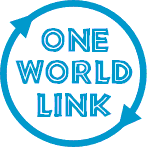OWLTALK on Thursday 5 September 2015
Two speakers came to speak to One World Link and its friends. One was Yash Tandon, a distinguished academic, campaigner and international negotiator, and the other was Robert Elliot, a professor of economics at Birmingham University.
The idea of the evening was to give everyone an insight into TTIP – the Transatlantic Trade and Investment Partnership. This controversial agreement between the US and the EU is seen by some as the key to unlocking wealth for participating countries, and by others as a license for multinational corporations to dominate governments and the public even more than they already do.
Robert Elliot started the evening by sketching out all the arguments in favour of free trade – and by extension of TTIP, which aims to remove barriers to trade between the US and Europe. He did this in a measured, sometimes quite technical way, taking us through mainstream economic arguments and evidence for the beneficial effects of free trade. It was quite clear that he was deliberately setting up a series of targets for Yash to tackle.
However, Yash took a different course. When it came to his turn he was more concerned to outline the arguments made in his new book “Trade is War” rather than tackling the specifics of TTIP. This made for something of a mismatch between the presentations, but was nonetheless very interesting. Yash’s argument is that trade has always been used by rich countries to keep themselves up and poorer countries down. In his view there is no such thing as economics or economists (though he does allow the existence of “political economists”). Economics as practiced by the likes of Rob, he inferred, was actually just a veil for power. Power is all that matters in these matters – exercise of power and resistance to power.
There was then a chance for Rob to respond and for questions from the audience. This was perhaps the most stimulating part of the evening. Audience contributions were well informed and to the point, ranging from technical queries about economic method to the plaintive question of “so what can we do to make things better”.
Again TTIP took a back seat. Yash elaborated on his previous arguments, backed up by his own experience as a negotiator in the Doha trade round and his impressive work as grassroots activist.
Rob continued valiantly to play the role of realist, quietly questioning some of Yash’s more idealistic/apocalyptic pronouncements. It was clear that Rob actually shared a fair few of Yash’s views.
In answer to the question of what we can do in the face of TTIP and other seemingly inexorable forces, the answer seemed to be to encourage local and small-scale trading initiatives as a bulwark against the multinationals. Modern technology means that small scale operators can be just as effective as the giants.
Since One World Link is built on the idea of local communities developing an unmediated relationship with each other, this message went down pretty well.

